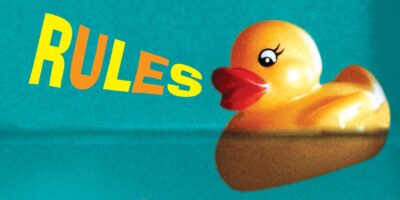-
Filter blog posts
Honor Roll titles
Review: Game World by Christopher John Farley
Review: Young Knights of the Round Table by Julia Golding
Turning Points
Review: I Funny by James Patterson and Chris Grabenstein
Review: The Sunny Sweet series by Jennifer Ann Mann
Review: Rules by Cynthia Lord
Review: Centaur Rising by Jane Yolen
Discussion: Warning Flags and Turn-Offs
Discussion: If We Could Tell an Author One Thing …
Representation Matters
What concerns me is that disabled characters are often integrated in the form of tokenism, meaning one token character that could be considered “different” is included in the plot. And even then, such characters are frequently depicted in stereotypical ways, despite being created by authors who may have the best of intentions.
All About Logistics
I’ve talked a lot about the ways my disability has affected my body image, my sexuality, my confidence, and my social interactions, and all of those things are important to consider when writing a disabled character. Today, however, I want to focus on the ways my disability affects the logistics of my life.












